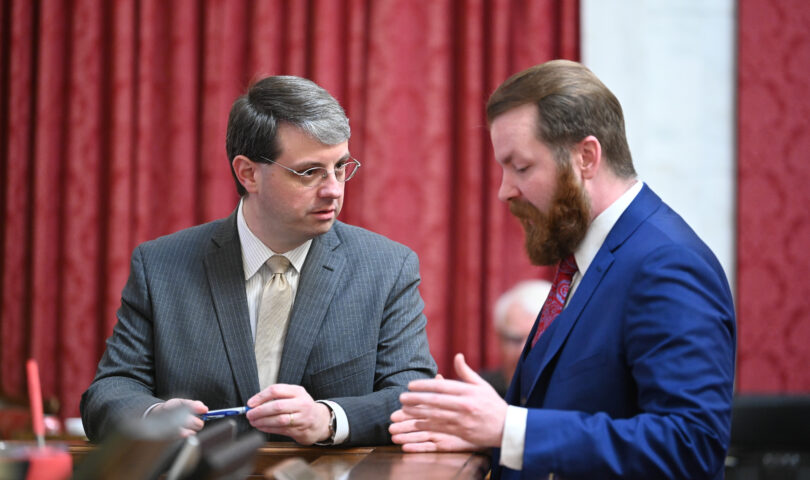MORGANTOWN – The House of Delegates passed a number of weighty bills on Wednesday – Crossover Day – but perhaps weightiest of all was the bill it didn’t pass: the bill to strip the Office of Miners’ Health, Safety and Training of its enforcement powers.
That bill was HB 4840, to change the role of MHST from enforcing mine safety regulations to offering assistance to operators. Inspections would have become “visits.” Violations subject to fines would have become “concerns or safety issues” subject to “recommendations or other assistance.”
Crossover Day – the 50th day of the 60-day session – is the last day for bills to leave their house of origin. HB 4840 was on third reading for passage on Wednesday but at the start of the day the House Rules Committee – composed of leaders of both parties – moved it to the inactive calendar.
That’s not always a sign of doom – sometimes bills just get parked there temporarily. But in this case, it was. It stayed there. One delegate on Tuesday called the bill an “abomination” and the United Mine Workers of America said, “The idea that anyone in the state of West Virginia believes we need less enforcement in the coal mining industry is outrageous.”
Of course, nothing is really dead until the session is over. House leaders could amend it into a Senate bill, for instance. But for now, it’s in a coma.
DHHR split-up bill
HB 4020 would divide the Department of Health and Human Resources into two departments: the Department of Health and the Department of Human Resources. Each would have its own secretary.
The bill assigns various divisions to each and leaves some agencies unassigned. The two secretaries would start working out the details on Jan. 1, 2023, and have a plan ready for legislative approval so that the two departments would start work on July 1, 2023.
Opponents worried the bill would create more bureaucracy while proponents said it would create efficiencies. Delegate Daniel Linville, R-Cabell, said DHHR has a $7.6 billion budget and the Finance Committee holds a two-hour hearing to review it – working out to $1 million per second.
He asked, “Can we effectively oversee that? … The answer is, of course not. Split ’em up and let’s get this back under control.”
The vote was 83-11and it goes to the Senate. All local delegates except Republican Guy Ward voted for it. Two other local Republicans, Buck Jennings and Amy Summers, did not vote.
County magistrate bill
HB 2910 would reallocate county magistrates, reducing the current number of 158 down to 149. It assigns two magistrates to each county, with additional seats allotted or seats removed based on a population formula. In cases where the formula would remove a seat, the state Supreme Court would review caseload to determine if that seat is needed.
In discussion, it was said Monongalia County would see its count rise from four to seven.
The bill was amended on Wednesday to ask the state Supreme Court to create a rule to allow regional magistrate sharing to help counties where the magistrate court needs help handling its caseload. This was based on a Senate bill, SB 573, that came to the House and is sitting in Judiciary.
It passed 66-29 and goes to the Senate. All local delegates except Democrats Joey Garcia and Dave Pethtel voted for it. Jennings was absent for the day.
Antibody bill
HB 4320 applies to employers with vaccine mandates for any communicable disease.
It says any employee who proves “biologic immunity by having protective antibody levels for the communicable disease” is exempt from the vaccine requirement for that disease.
It passed 68-28 and goes to the Senate. Locally, all Democrats voted against it, all Republicans voted for it.
Tweet David Beard @dbeardtdp Email dbeard@dominionpost.com




